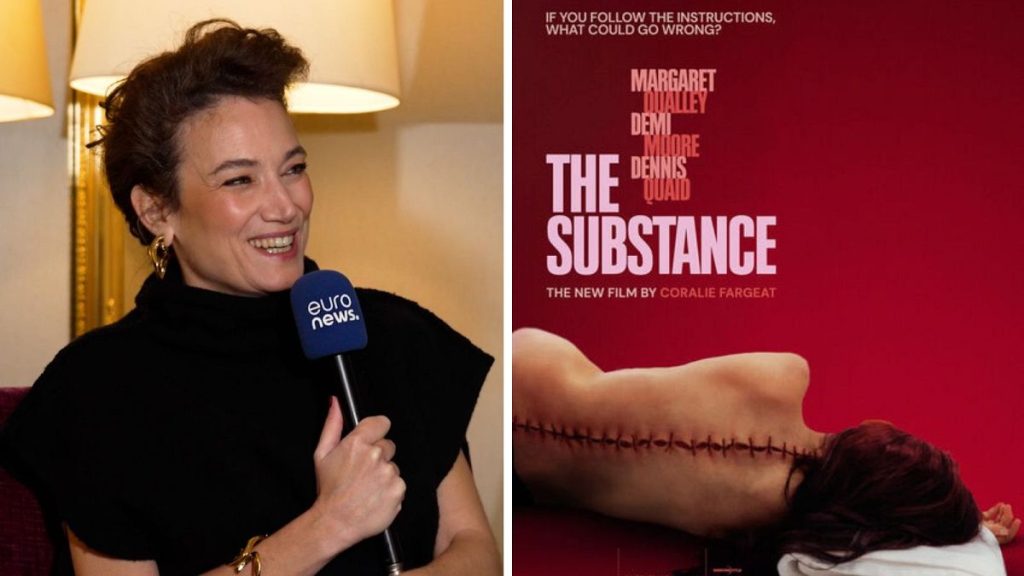Coralie Fargeat’s “The Substance” has taken the film world by storm, garnering critical acclaim and numerous awards nominations, including five Oscars. This darkly comedic body horror satire tackles the pervasive issues of sexism and ageism, particularly within the cutthroat Hollywood system. Its success has solidified Fargeat’s position as a prominent and vital voice in contemporary cinema, building upon the impact of her 2017 debut, “Revenge,” which subverted the traditional male gaze in horror. “The Substance” expands this critique, offering a warped cautionary tale about societal pressures and the pursuit of unrealistic standards. The film’s unique blend of entertainment and social commentary has sparked widespread discussion and cemented its place in cultural conversations.
Fargeat believes that genre cinema is a powerful tool for social commentary. The entertaining nature of genre films draws audiences in, allowing them to absorb the film’s message in a less direct, more impactful way. This approach allows the themes and ideas presented to resonate with viewers long after the credits roll, encouraging deeper reflection and discussion. “The Substance,” with its graphic violence, dark humor, and satirical edge, embodies this approach, leaving a lasting impression on audiences and prompting critical examination of societal norms.
The film’s exploration of societal pressures on women’s bodies resonates with Demi Moore’s comments about America’s puritanical roots and the enduring taboo surrounding sexuality. Fargeat believes these issues extend beyond national borders, impacting women globally. She stresses the urgency of liberating women from the constant scrutiny and control placed on their bodies, advocating for their right to choose how they present themselves without fear of judgment or restriction. “The Substance” uses its violent and excessive nature to underscore the need for a radical, immediate shift in societal attitudes toward women’s bodies.
Fargeat expresses concern over the slow pace of change following the #MeToo movement, viewing the progress made as largely cosmetic. She points to persistent inequalities in various spheres of life, from violence against women to their underrepresentation in positions of power, as evidence of the deeply entrenched nature of sexism. Her decision to withdraw “The Substance” from the Camerimage Film Festival after misogynistic comments by the director highlights her commitment to taking action against such behavior. She believes that actions speak louder than words and that individuals with influence should use their platforms to challenge the status quo and demand meaningful change.
The intense reactions elicited by “The Substance,” including reports of audience members fainting or vomiting, raise questions about the different standards applied to male and female directors. Fargeat acknowledges the ongoing disparity in representation within the film industry, noting that the small number of female filmmakers contributes to this differential treatment. While she hopes that such distinctions will become irrelevant in the future, she emphasizes the need for continued focus on achieving true parity in the industry.
Fargeat advocates for the implementation of quotas to address the gender imbalance in filmmaking. She argues that simply prioritizing “quality” ignores the systemic power dynamics that prevent equal opportunities for women. Quotas, she believes, can force the industry to look beyond its established networks and discover talented female filmmakers who might otherwise be overlooked. While acknowledging that making a film is always challenging, Fargeat expresses excitement about her next project, invigorated by the confidence and liberation gained from the success of “The Substance.” She sees the film as confirmation of her artistic vision and eagerly anticipates returning to writing and directing, ready to tackle new narratives with her distinctive voice.














